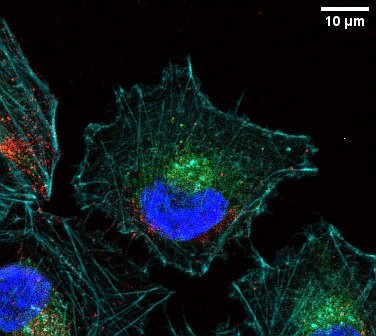Space Research at Mayo Clinic Advances Medical Discoveries on Earth

In a groundbreaking intersection of space exploration and medical research, Dr. Abba Zubair, a physician and researcher at the Mayo Clinic in Jacksonville, Florida, is leveraging the unique conditions of microgravity aboard the International Space Station (ISS) to advance our understanding of critical health issues such as cancer, stroke, and osteoporosis. His research aims to utilize the peculiar environment of space to benefit both astronauts and patients on Earth.
Since 2017, Dr. Zubair has conducted three significant research projects in microgravity, with plans for additional studies. His work focuses primarily on adult stem cells, particularly mesenchymal stem cells, which are vital for potential therapies aimed at treating stroke and combating bone loss. According to Dr. Zubair, “The goal is to harness the uniqueness of the space environment for the betterment of humanity, be it on Earth or in space.”
Historically, research in space has provided invaluable insights into human physiology. The absence of gravity, along with the impacts of radiation, allows scientists to observe biological processes that are difficult or impossible to replicate on Earth. Dr. Zubair's investigations are particularly pertinent as they address the challenge of bone density loss experienced by astronauts during extended space missions.
“During our first flight, we discovered that microgravity significantly affects stem cell division and growth rates,” Dr. Zubair explained. This finding prompted further investigation into how these stem cells contribute to bone formation and the potential for treating osteoporosis, a condition that affects not only astronauts but also millions of individuals on Earth.
In his ongoing research, Dr. Zubair is also studying leukemia stem cells to understand their responses to the space environment. “We are working to understand the impact of space radiation and how we can mitigate its effects to prevent cancer,” he noted. This research could lead to innovations in cancer treatment, including improvements in CAR-T therapies and bone marrow transplants.
One of the more provocative aspects of Dr. Zubair’s work is the possibility of using space as a new frontier for medical treatment. He envisions a future where patients might travel to space for therapies that exploit the unique conditions of microgravity. “If we can establish that cancer cells proliferate more effectively in space, then chemotherapy could be more effective when administered in microgravity,” he stated. Although simulating microgravity on Earth poses significant challenges, Dr. Zubair believes that it is technically feasible.
The implications of Dr. Zubair's research extend beyond the confines of space travel. By uncovering how stem cells behave in microgravity, researchers hope to develop new strategies for protecting cells from radiation exposure, which is critical given increasing concerns about nuclear accidents and environmental radiation.
Dr. Zubair's pioneering work is supported by Mayo Clinic’s commitment to advancing regenerative medicine, backed by a $50 million gift aimed at fostering global health innovation. This funding underscores the clinic's dedication to exploring novel treatment avenues that may arise from space research.
As the intersection of space exploration and healthcare continues to evolve, the outcomes of Dr. Zubair's studies may not only enhance our understanding of human health but also pave the way for new medical breakthroughs that could benefit countless individuals on Earth. The future of medicine may very well be written in the stars, as researchers like Dr. Zubair continue to push the boundaries of science in space and bring those insights back to Earth.
Advertisement
Tags
Advertisement





